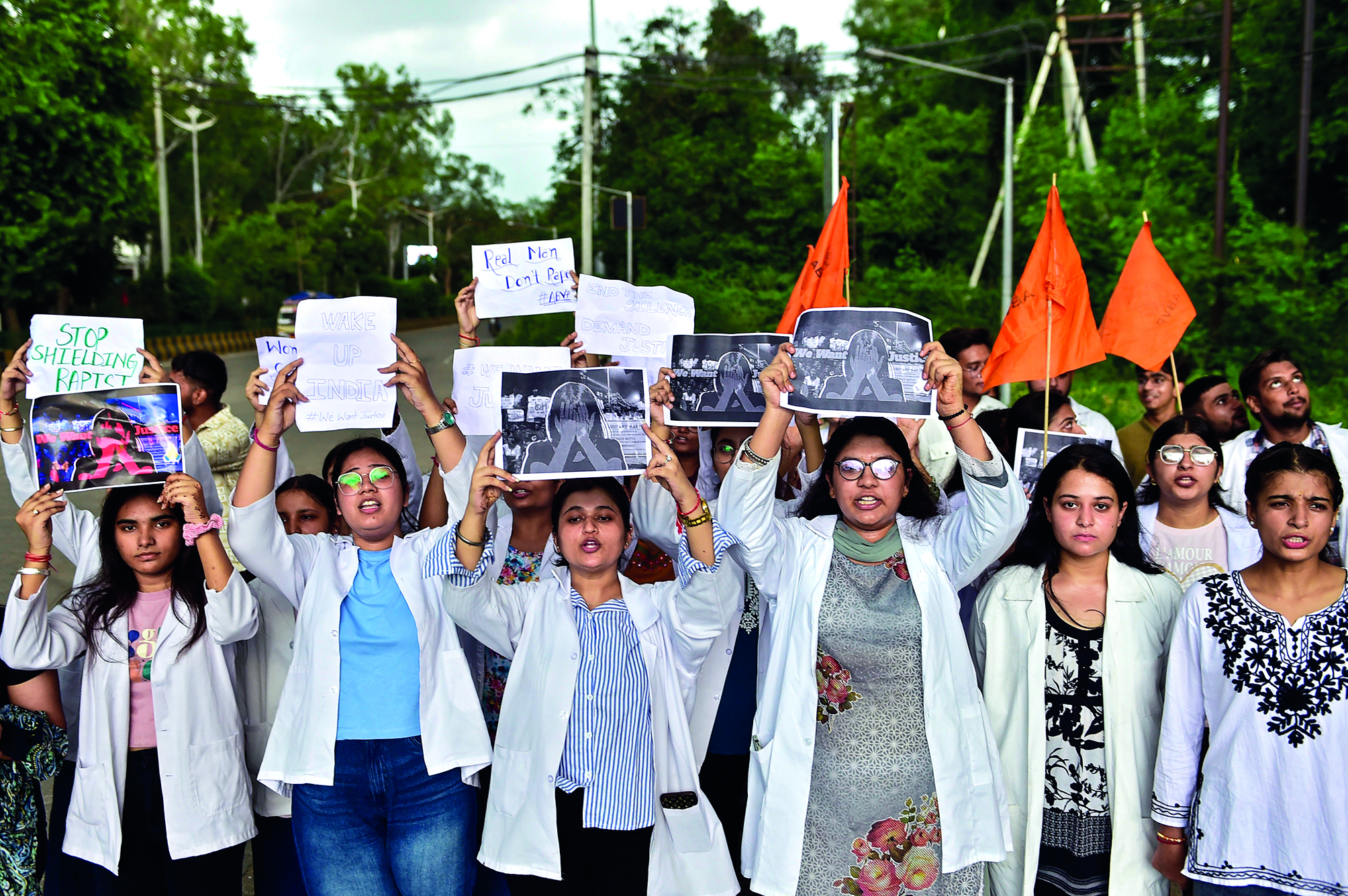Centre suggests measures to states on safety of medics

New Delhi: In a significant move to address the growing concern over violence against medical professionals, the Centre has issued a comprehensive set of directives to states, urging them to implement robust security measures in healthcare facilities. This development comes in the wake of a recent Supreme Court order, prompted by the tragic rape and murder of a junior doctor in Kolkata, which sent shockwaves through the medical community nationwide.
The Union government’s response, spearheaded by the health and home ministries, outlines a multi-faceted approach to enhancing safety in hospitals and medical colleges. Union Health Secretary Apurva Chandra and Union Home Secretary Govind Mohan co-chaired a virtual meeting on Wednesday, attended by chief secretaries and director generals of police (DGPs) from across the country, to discuss and disseminate these crucial directives.
“The safety of our healthcare workers is paramount,” stated Health Secretary Chandra during the meeting. “We must take immediate and concrete steps to create a secure environment where medical professionals can perform their duties without fear,” he said.
The directives encompass a comprehensive set of measures aimed at bolstering security and operational efficiency in healthcare facilities. These measures include mandatory security audits, where district collectors, deputy superintendents of police, and hospital management are tasked with jointly assessing district hospitals... and medical colleges to promptly identify and rectify infrastructure and security deficiencies.
To enhance surveillance, the installation of CCTV cameras, especially in blind spots, is required, along with the creation of control rooms for continuous monitoring of hospital premises. Regulated access is another critical aspect, with large healthcare facilities being advised to implement stricter access control measures to better manage visitor flow and improve overall security. The directives also call for increased night patrolling in all hospitals and medical colleges to ensure safety during vulnerable hours.
Furthermore, the integration of the 112 helpline number is mandated to guarantee a rapid response for healthcare workers during emergencies. Regular security checks of hired security personnel and service staff are also emphasised to maintain a trusted and reliable workforce. Lastly, capacity-building initiatives include training programs for doctors and healthcare workers, particularly in bereavement protocols, to equip them with the skills needed to handle sensitive situations in emergency and casualty wards effectively.
Home Secretary Mohan emphasised the importance of these measures, stating: “By implementing these directives, we aim to create a safer working environment for our medical professionals, allowing them to focus on their primary duty of saving lives.”
The Centre’s push for enhanced security comes against the backdrop of existing state-level legislation. Currently, 26 states and Union Territories have laws in place to safeguard healthcare professionals. The central government is now urging the remaining states to enact similar protective legislation.
“We strongly encourage all states to adopt comprehensive laws that protect our medical fraternity,” Chandra said. “This legal framework, combined with on-ground security measures, will form a robust shield for our healthcare workers,” he said.
The recent incident at the West Bengal government-run R G Kar Medical College and Hospital, which triggered nationwide protests by resident doctors, has served as a catalyst for these sweeping changes. The medical community’s demand for a central law ensuring the security of health professionals at their workplaces has gained significant momentum.
In response to these concerns, the Supreme Court has taken suo-motu cognizance of the issue. The court’s orders on August 20 and 22 directed the health secretary to engage with state officials to implement “certain basic minimum requirements” to address doctors’ safety concerns, pending the report of the court-appointed National Task Force (NTF).
The NTF, chaired by the Cabinet secretary, held its inaugural meeting on Tuesday, signalling the government’s commitment to addressing this critical issue at the highest levels.
State officials present at the virtual meeting reported on various steps already taken to strengthen security arrangements. These include displaying provisions of the Bharatiya Nyaya Sanhita to protect healthcare professionals, initiating police verification of contractual employees, establishing police outposts on the premises of large medical colleges and district hospitals, and increasing patrolling.
Several states have also reported the implementation of sexual complaint and harassment committees, review and strengthening of CCTV networks, and the operation of emergency helpline numbers with good response times.
“We are seeing a proactive approach from many states,” noted a senior official from the health ministry. “However, consistent implementation across the country is crucial to ensure uniform protection for all healthcare workers,” the official said.
The directives also address the need for better patient management in large hospitals. The Centre has suggested the deployment of patient facilitators, trolley men, and multi-tasking staff to reduce the number of patient attendants, thereby easing the load on security personnel.



